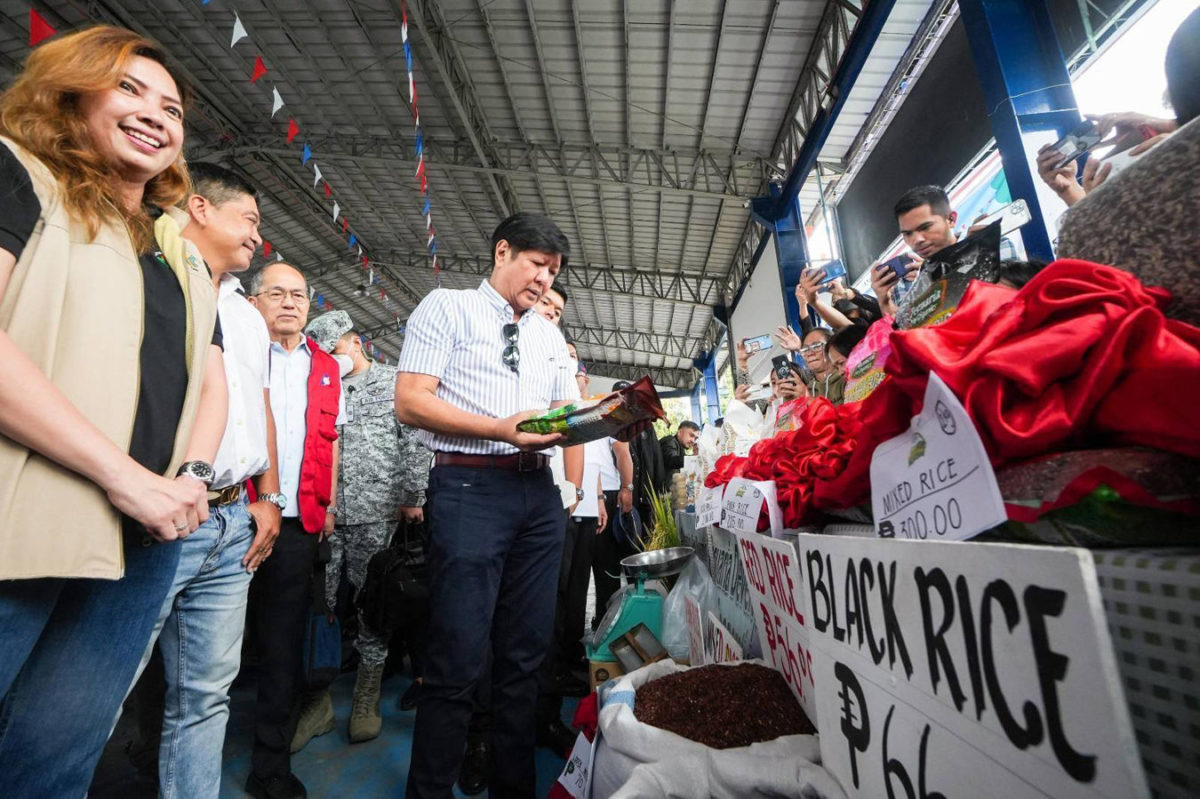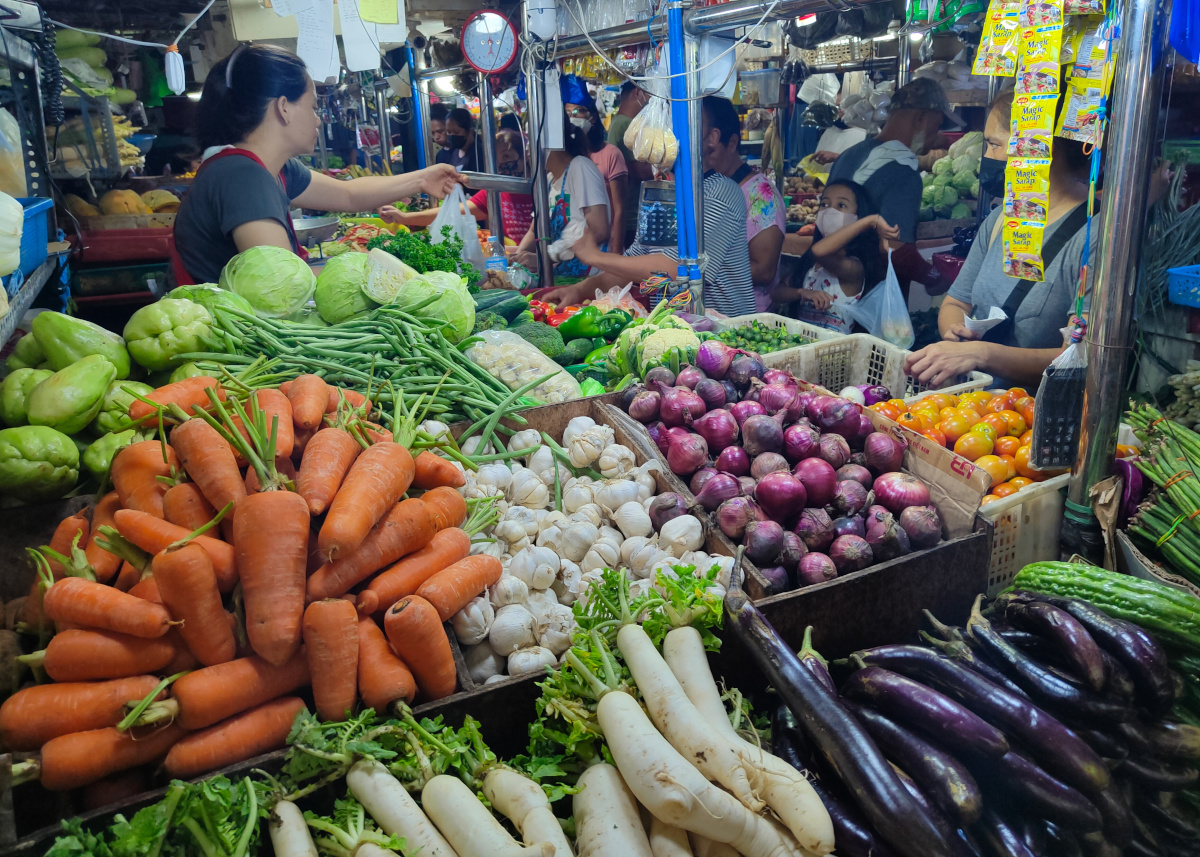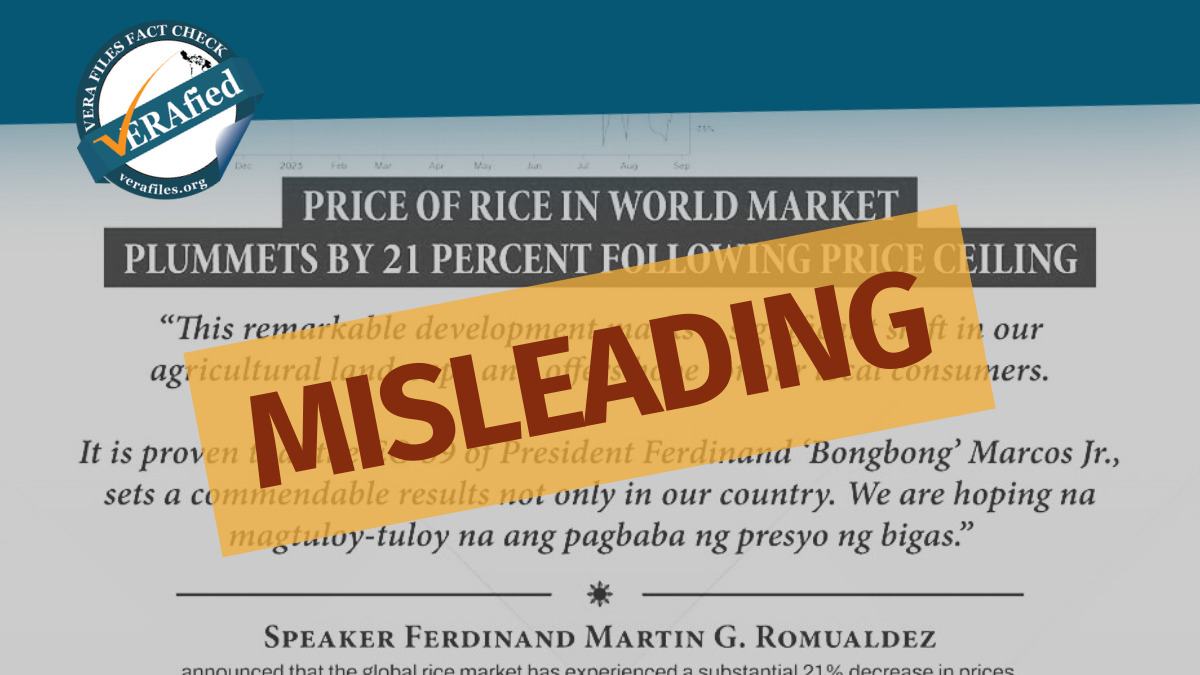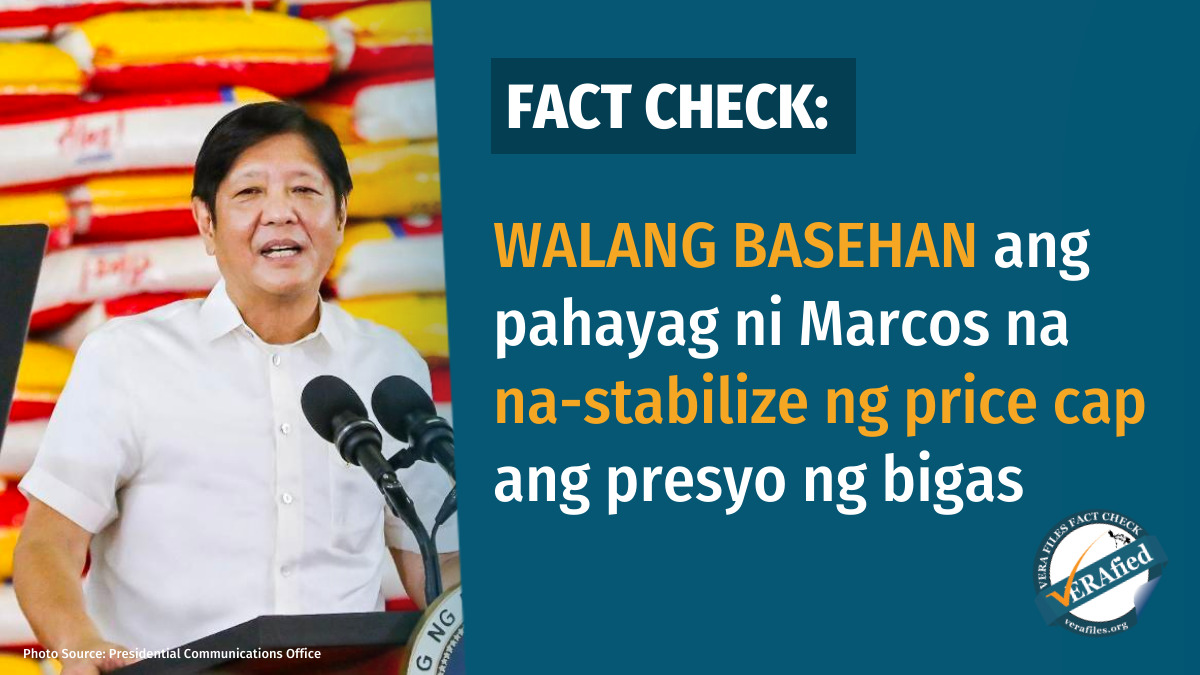President Ferdinand Marcos Jr. once again claimed that his administration is getting closer to his campaign promise of bringing down the price of rice to P20 per kilo. This needs context.
In December 2022, VERA Files Fact Check debunked the same claim by Marcos. (Read VERA FILES FACT CHECK: Marcos Jr.’s claim that rice now at P25 per kilo statement needs context)
STATEMENT
During the launching of the Kadiwa ng Pangulo project in Camarines Sur last March 16, Marcos said:
“‘Yung aking pangarap na sinabi na nung bago akong upo na sana mapababa natin ang presyo ng bigas ng P20; hindi pa tayo umaabot doon, dahan-dahan, palapit. Nasa P25 na lang tayo, kaunti na lang maibababa natin ‘yan.”
(My dream that I said when I assumed [the presidency] that hopefully we can bring down the price of rice to P20, we haven’t achieved that, [but] slowly we will get to it. We’re already at P25, just a little more and we’ll be able to lower that [price].)
Source: RTVMalacanang, Kadiwa ng Pangulo in Pili, Camarines Sur (Speech), March 16, 2023, watch from 2:28 – 2:49
FACT
While Marcos is correct that well-milled rice can be bought at P25 per kilo, he stopped short of saying that this is available only at the Kadiwa stores managed by the National Food Authority (NFA).
In fact, the Department of Agriculture’s March 16 price watch shows that rice sold in public markets in Metro Manila still range from P34-50 per kilo for local commercial rice and P37-50 for imported rice.
Data from the Philippine Statistics Authority also shows that from the beginning of the Marcos administration until the first half of March 2023, retail prices of local regular and well-milled rice by region never decreased to P25.
The Kadiwa ng Pangulo is an initiative of the Office of the President and the Agriculture department aimed at softening the impact of rising inflation by providing affordable and accessible food to Filipinos.
It was initially launched in December 2022 as Kadiwa ng Pasko which was also intended to provide a direct and stable market for farmers and fishers as well as micro, small, and medium enterprises during the holiday season.
The project is named after the Kadiwa rolling stores project of Ferdinand Marcos Sr. which offered rice, milk, eggs, and other basic commodities at lower prices. The stores were shut down during the 1985 economic crisis. (Read Marcos propaganda in a time of plague)
Currently, government agencies and wholesalers may purchase rice from the NFA at P25 per kilo. The agency follows a “buy high, sell low” formula that allows the NFA to buy palay from local farmers at a set support price and have local millers process these into rice which it then sells at a loss.
The Rice Tariffication Law signed by former president Rodrigo Duterte in 2019, however, stripped the NFA of its import licensing and regulatory functions but retained its role of maintaining a buffer emergency rice stock.
Have you seen any dubious claims, photos, memes, or online posts that you want us to verify? Fill out this reader request form.
Sources
RTVMalacanang, Kadiwa ng Pangulo in Pili, Camarines Sur (Speech) 3/16/2023, March 16, 2023
National Food Authority, Buying/Selling Price, accessed on March 17, 2023
Department of Agriculture, Retail Price Range of Selected Agri-fishery Commodities at NCR Markets, Thursday, March 16, 2023, March 16, 2023
Philippine Statistics Authority, Price Situationer of Selected Agricultural Commodities, accessed March 20, 2023
Department of Agriculture, PBBM-led Kadiwa opens in more areas outside the Metro, March 2, 2023
Ramon Clarete, Options for Philippine Food Authority Reforms, 2008
Department of Agriculture, DA Bulletin No. 1 on Rice: Understanding the Rice Tariffication Law (RTL) or RA 11203, Sept. 10, 2019
Official Gazette, Republic Act (RA) 11203, Feb. 14, 2019
(Guided by the code of principles of the International Fact-Checking Network at Poynter, VERA Files tracks the false claims, flip-flops, misleading statements of public officials and figures, and debunks them with factual evidence. Find out more about this initiative and our methodology.)




